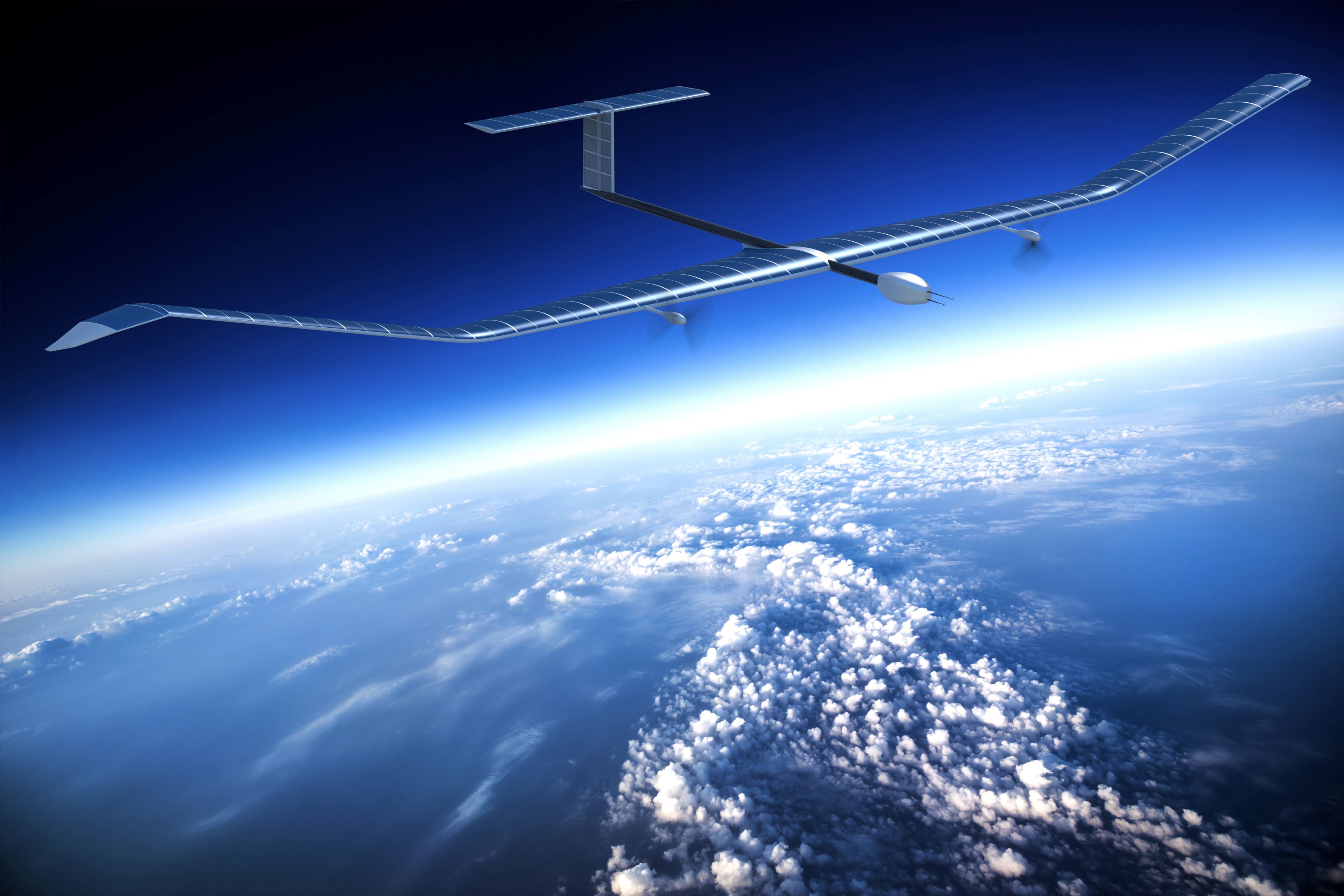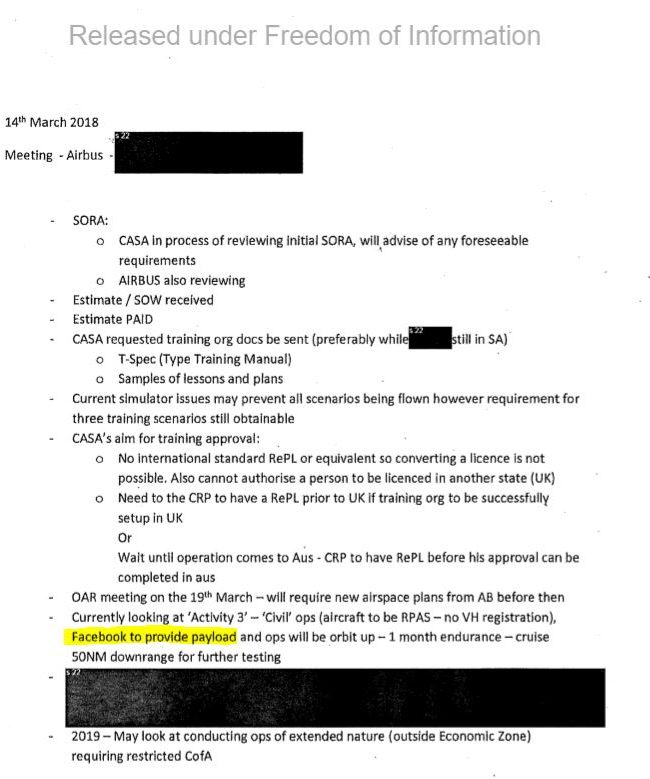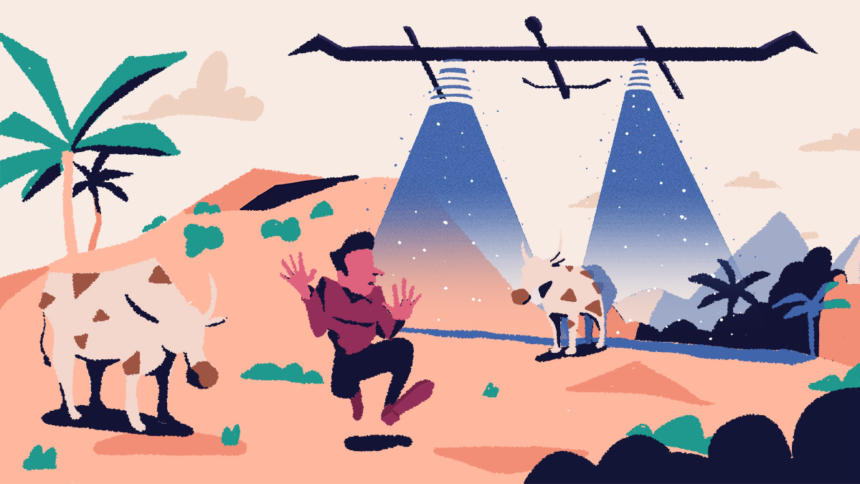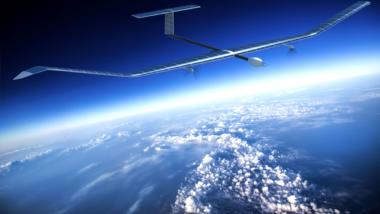Facebook’s ambitions are astronomic. 20,000 meters high, to be precise. The company has been working for months on a secret project to transform it from a social network to a global Internet provider. We publish a document that shows Airbus and Facebook are planning drone tests in the Australian bush.
With the help of the Airbus Zephyr drone, the social media company plans to beam Internet connectivity from the Earth’s stratosphere. The drones operate at an altitude of 20 kilometers and connect back to the ground via millimeter-wave radio. Facebook wants to bring connectivity to the 3,8 billion humans who don’t yet use the internet – and hook them up with its services.
Drone plans unearthed
Facebook officially buried its own drone project, code named Aquila, last June after years of development. Back then, this was reported in the press as end to Facebook’s drone plans.

But the company never gave up. As we reported in October, Facebook was already planning tests with the European aerospace giant Airbus before shuttering it’s own drone program.
Facebook and Airbus met European regulators in April 2018 to discuss providing connectivity with Zephyr drones. ‚In Europe such project [sic] could be deployed in a smart cities approach‘, an European Commission official notes in an email.
Yet Facebook has been surprisingly shy about the project. It has so far never publicly acknowledged its interest in Zephyr.
Airfield in the outback
The document we publish gives a rare insight into Facebook’s new drone project. It shows that from March to September 2018 Airbus met the Australian Civil Aviation Safety Authority (CASA) at least 18 times. The agency handed over their meeting minutes to us on a request under the Australian Freedom of Information Act. The document shows Airbus‘ efforts to get approval for the drone tests. The company was awarded a drone operator certificate on September 19, 2018.

The planned venue for the tests is Wyndham airfield in Western Australia. According to the document, the payload for the drone was to be provided by Facebook.
Airbus planned flights for November and December. However, it is unclear whether they actually took place. According to the minutes, tests had to be delayed several times. Both Facebook and Airbus declined to provide details of their cooperation.
‚We continue to work with partners on High Altitude Platform System (HAPS) connectivity. We don’t have further details to share at this time‘, a Facebook spokesperson wrote us via email. Airbus did not respond to requests for comment.
Facebook remains silent about the scope of its new drone project. It also remains unclear whether it is technically feasible to provide mass internet access via drone. In a blog entry in 2017, Facebook boasted of its advances in the field but acknowledged there was more testing to do.
Zephyr: Made for war
Previous Zephyr buyers came from the military. In 2016, the UK Ministry of Defense bought three drones for 4.3 million pounds each. The British use Zephyr for reconnaissance. It ‚puts our Armed forces at the cutting edge of communication and surveillance‘, a general was quoted in a press release. If Facebook buys the drone, the company will have state-of-the-art defense technology in its hands.
The drone with a wingspan of 25 meters can charge its batteries in the air via solar panels. Staying operative for weeks, it practically turns into a satellite. The Model S, which Airbus and Facebook are likely testing in the Australian bush, set a 26-day flight record last year.
The project is the yet most ambitious part of Facebook’s effort to provide connectivity and affordable services to less developed countries. The social media giant is not alone in attempting this.
A challenge to net neutrality
Google’s parent company Alphabet owns Loon, a subsidiary aiming to provide internet access using hot-air balloons. Meanwhile, Facebook is competing with Google and Amazon in laying deep-sea cables to cope with the data hunger of users in Asia. In the US, Google launched its own mobile service provider, Google Fi. Internet via drone or balloon would be just the next step.
In countries like Egypt and Nigeria, Facebook offers „Free Basics“ for cell phone users. The app provides nearly unlimited use of free data. In some countries, Facebook and its messenger service WhatsApp have become the epitome of the Internet.
Critics see this as a potentially terminal blow to net neutrality. Google and Facebook, in essence, have become the internet for many users.
Its new drone project could help Facebook to further strengthen its market position in the global South. So far, the company has been dependent on new cables and local partners. If the cooperation with Airbus is successful, it could push Facebook to as yet unreached heights.





Der Link zum Titelbild ist kaputt (: